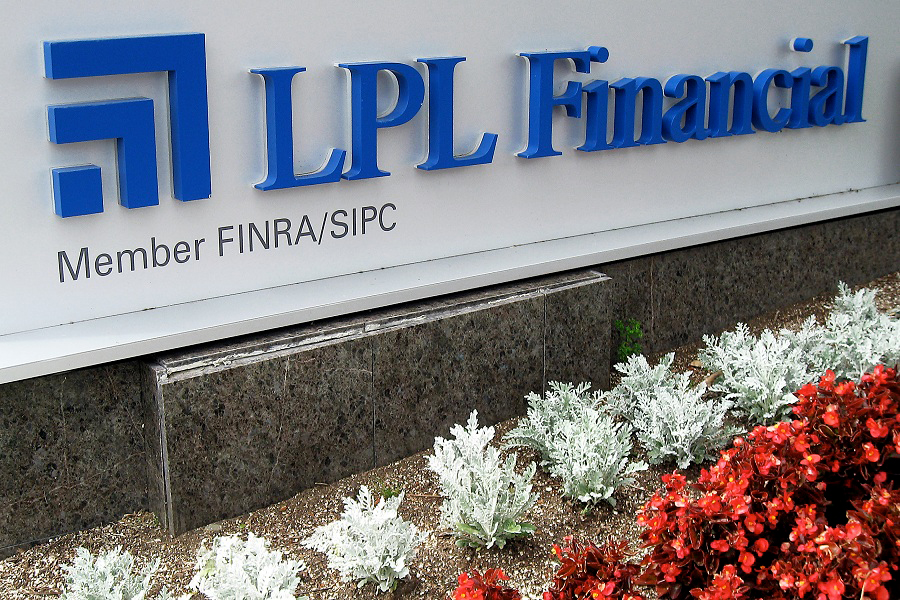Recent moves in the recruiting group at LPL Financial make it clear that the firm is trying to target more registered reps and financial advisers who currently work at wirehouses and convince them to leap to a broker-dealer where they labor as independent contractors rather than employees.
LPL is the industry leader in recruiting and maintains a huge operation; it can have as many as 50 to 80 internal and external recruiters beating the bushes for advisers.
Two questions overhang LPL's effort. First, and simply, will LPL's new emphasis succeed in 2019? And will other IBDs mimic the strategy at LPL, a true bellwether for the independent broker-dealer industry?
Let's take a step back to see how LPL has put itself in a position to try to lure more wirehouse brokers, the most productive and profitable in the retail securities business.
There has been a yearlong shake-up in LPL's recruiting unit, with a number of recruiters leaving LPL in 2018, some to work at rivals.
Most notably, in June LPL bid adieu to the leader of its recruiting group, Bill Morrissey, who retired. Mr. Morrissey's title was managing director and head of business development. And LPL said hello to Richard Steinmeier, a veteran of, you guessed it, the wirehouse side of the business.
Mr. Steinmeier worked at Merrill Lynch for four years before leaving to join UBS Financial Services in 2012, where his title was managing director and chief digital officer.
LPL made clear its intention to focus more on wirehouse brokers
last week, when Marc Cohen joined the firm. Mr. Cohen most recently was chief operating officer of MarketCounsel, where he worked for a dozen years.
MarketCounsel is a legal and consulting firm for registered investment advisers and so-called breakaway brokers, meaning financial advisers at large Wall Street banks and wirehouses who leave those institutions to become independent registered investment advisers and hold client assets in custody with Schwab Advisor Services, TD Ameritrade Institutional and Fidelity.
In 2018, LPL had targeted adviser recruiting campaigns at different times during the year.
For example, in April it said it was focusing recruiting on advisers at select firms. The heady offer was in the form of a three-year forgivable loan that pays an adviser 50 basis points on assets transferred to LPL.
Like other independent broker-dealers, LPL has traditionally offered advisers it wants to recruit a traditional recruiting package of 25 to 35 basis points based on the prior year's production of fees and commissions.
One industry recruiter who works with large independent broker-dealers, including LPL, said that LPL's recent executive hires made sense: Many wirehouse brokers and advisers remain skeptical about leaving a job at a large bank to go to an IBD or RIA.
Read more:
Wirehouse vs. broker-dealer: how are they similar/different?
And while LPL has had its share of success in recruiting wirehouse advisers, it lags its direct competitors, Raymond James Financial Services Inc. and Ameriprise Financial Services Inc., said Casey Knight, executive vice president of ESP Financial Search.
"LPL is looking to have a very exciting year in recruiting in 2019, and the wirehouse focus is a very real initiative," Mr. Knight said. "It's not going to be the sole focus, but it's a category the firm is falling short of in comparison to some rivals."
"Bringing in Marc Cohen from MarketCounsel is a way to make that process more efficient, because of his background, experience and understanding how those adviser transitions work," Mr. Knight said. "He's at LPL to make it a more appealing process to advisers. There's always room for improvement."
LPL declined to comment for this column, said Jeff Mochal, a company spokesman.
Although LPL has not yet developed a recruiting deal targeted at wirehouse advisers, Mr. Knight said he expected one in the future. And LPL is also seeing success in electronically transferring clients' accounts, known as ACATS in the industry, making the process of moving from a wirehouse to LPL all the easier, he added.
It won't be easy for rival IBDs to shape such a recruiting effort and chase wirehouse advisers in the manner that LPL has chosen. Too many lack the size, capital and bench of executives that LPL has right now.
Much of LPL's success in recruiting wirehouse advisers depends on changing the perception that IBDs are second-tier firms when it comes to service and products. Hiring Mr. Cohen and Mr. Steinmeier is certainly a good start.







